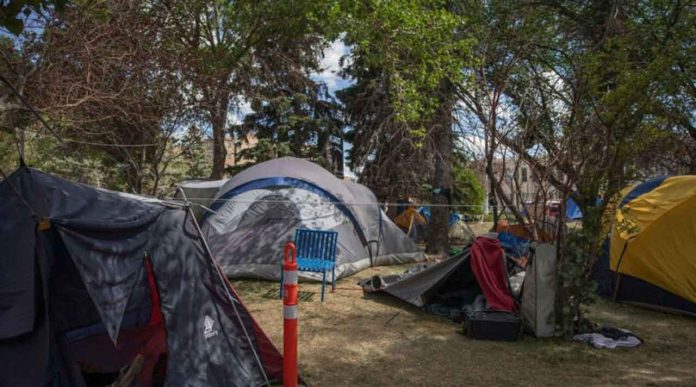A New Report Emphasizes the Critical Need for Culturally Informed Housing Solutions
VANCOUVER – Indigenous News – In a positive move towards reconciliation, the Aboriginal Housing Management Association (AHMA) unveils insights from a new report underscoring the urgent need for Indigenous-led housing solutions to address the heightened risk of homelessness among Indigenous Peoples with diverse abilities.
Situated on the unceded territories of the xwməθkwəy̓əm (Musqueam), Sḵwx̱wú7mesh (Squamish), and səlilwətaɬ (Tsleil-Waututh) Nations, this announcement marks a pivotal moment in advocating for equitable housing practices in British Columbia.
Comprehensive Research Led by Indigenous Perspectives
The report, titled “Exploring Inclusive Housing for Indigenous Peoples Living with Diverse Abilities Across British Columbia: An Environmental Scan,” represents a thorough investigation spearheaded by Dr. Krista Stelkia of Simon Fraser University.
Utilizing a three-phase methodology, the study scrutinizes the accessibility landscape of housing supports for Indigenous individuals with diverse abilities, highlighting systemic gaps through literature review, surveys of AHMA members, and interviews with those directly affected.
Key Findings and Recommendations
Among its findings, the report identifies significant barriers faced by Indigenous peoples with diverse abilities in securing suitable housing, especially for individuals with compounded needs related to mental health and substance use.
It proposes 26 strategic recommendations to advance Indigenous-led housing initiatives, emphasizing the importance of culturally responsive and equitable housing solutions.
Addressing Systemic Challenges
The research sheds light on the complexity and insufficiency of current systems, which often leave the most vulnerable members of the community without necessary support. An anonymous informant poignantly reflects on the systemic failings: “Vulnerable CLBC folks get lost in the system … it’s just too much to navigate.”
The Path Forward: Collaboration and Cultural Safety
The report advocates for enhanced collaboration between Indigenous and non-Indigenous housing providers, stressing the need for culturally safe and inclusive practices that empower Indigenous individuals to make informed decisions about their housing and care. This collaborative approach necessitates concerted efforts from various provincial entities, including child welfare, education, health, and housing sectors.
Margaret Pfoh, CEO of AHMA, reiterates the association’s dedication to pioneering For Indigenous, By Indigenous solutions that are trauma-informed, culturally safe, and rooted in lived experiences. “Housing is a determinant of health, both at an individual level and within our society,” Pfoh states, underscoring the vital role of housing in overall well-being.
Ross Chilton, CEO of Community Living BC, expresses enthusiasm for the collaborative efforts to actualize the report’s vision, highlighting the importance of partnership in achieving meaningful progress.
A Call to Action for Inclusive Change
The recommendations and insights offered in this report serve as a blueprint for meaningful policy reform and operational enhancements within organizations serving Indigenous Peoples with diverse abilities. By prioritizing culturally informed, inclusive housing solutions, there’s hope for significant strides towards eliminating homelessness and improving the lives of Indigenous individuals across British Columbia.






